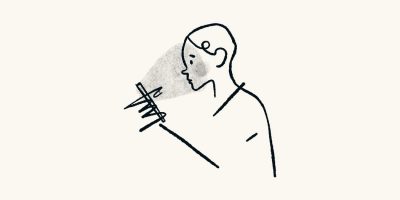What Do You Want to Be When You Grow Up?
Our imaginings of the future begin when we are surprisingly young. We witness, as children, the many titles and positions that are present within our communities and within the world at large, and we build characters out of careers. We reenact what we see in daycares and elementary schools, dressing up as doctors and ballerinas and the like — and we are asked, quite often, what we would like to be when we grow up.
When we are young, the question is inconsequential. The idea of what we will become changes with our moods and our whims. It isn’t until we are much older that the question gains a significant amount of weight and we begin to explore our passions and our abilities, hoping to discover the “right” answer.
I actually wanted to become an architect well into my high school career. I liked Legos as a kid so I figured that making buildings was a clear fit. When I found out how much math and physics was involved, I changed my mind.
Albert Mancao, Incoming MFA Student
Some people attribute the discovery of their passions and their career paths to the time they spent in high school classrooms. Some even still, however, owe their visions of the future to the broader opportunities awarded to them as undergraduate students.
In my own experience, high school allowed me a glimpse at my true passions, but offered me little help in refining my goals and deciding upon a career. My undergraduate education has been a different experience entirely. Not only was I able to explore a greater variety of focused courses and create a unique degree program that satisfied each of my academic desires, but I have realized the answer to the infamous question of who and what I want to be.
Coincidentally, my ideal career also requires some education beyond the undergraduate level. Graduate School can be a daunting aspect for some; the thought of additional schooling and the costs associated with those “extra” years can be too much to fathom. But, for others, the knowledge and the experience that can be attained by continuing their education at the Graduate level is invaluable.
So, what kind of programs does Rutgers—Camden have to offer? Overall, our University offers a wide variety of both Masters and Doctorate courses, ranging anywhere from Education to Forensic Science. However, there is one such program that I would like to share today, a program known for its admirable faculty, genuine creative community, and financial accessibility. This particular program is none other than the Master of Fine Arts in Creative Writing program.
Why a Master of Fine Arts?
The Master of Fine Arts in Creative Writing program here at Rutgers—Camden is currently directed by Lauren Grodstein, also a professor within the English Department, a member of the Department of Childhood Studies, and a published author of several fiction novels. I first met Lauren upon taking an undergraduate course titled “The Short Story”, in which she was an engaging and memorable professor. When it came time to research the MFA program more intensively, I decided to reach out to her directly for additional information.
One of my first questions — which I strongly believe to be a rather universal question — was in regards to the technicalities of the degree itself. Namely, what is the difference between a Masters and a Master of Fine Arts? And, what does the Rutgers—Camden Creative Writing program entail?
Workshopping aspects of a creative piece is a universal experience and learning to accept criticism while helping others is integral to the life.
Albert Mancao, Incoming MFA Student
As it was explained to me, an MA is traditionally seen as a preparation for the pursuance of a PhD or Doctorate. Conversely, an MFA is a terminal degree (meaning, it is the highest degree available in a given field) that consequently requires a heavier credit load. Applications to the program vary between whichever Genre a student chooses as their focus, but overall, any given student will be required to submit the following: an application form and the associated application fee, an official transcript indicating the completion of a Bachelor’s degree with a GPA of 3.0 or greater, two letters of recommendations, as well as a writing sample and personal statement. Additional information regarding the application process can be found here.
Unique to the Rutgers—Camden MFA in Creative Writing is its financial accessibility, which largely influences the 400 some applications the program receives each year. Of those 400 applications, only 20 will be accepted. Normally, each of those 20 students would be accepted on a full-time basis which includes benefits such as tuition remission, healthcare, and a living stipend awarded each year in exchange for the teaching of English Composition courses. However, in the aftermath of the COVID-19 pandemic, the program was only able to accept 17 full-time students for the 2020-2021 academic year, while the remaining three were offered enrollment on a part-time basis. This may continue to change and evolve as we begin to recoup from this unprecedented crisis, resulting in a greater enrollment of part-time students who will still receive the many financial benefits of the program, although only for a limited time. Regardless of full-time or part-time acceptance, students will be required to complete at least 39 credits consisting of 3 literature courses, 3 craft courses, 5 workshops, and a concluding thesis.
No matter if students are accepted full-time or part-time, the program remains an outstanding example of the Graduate education one can receive at Rutgers—Camden. Beyond the financial aspects of the program, the Creative Writing MFA also touts an admirable, experienced, and welcoming faculty known for their skill in their respective crafts. Among the faculty are figures such as Lisa Zeidner, author of five novels and two book of poetry, as well as a recipient of awards such as the Brittingham Prize and the Sussman Award for Excellence in Teaching, and Patrick Rosal, author of four full-length poetry collections and recipient of awards such as the Association of Asian American Studies Book Award, Global Filipino Literary Award and the Asian American Writers Workshop Members’ Choice Award.
It doesn’t just give you practice, it also gives you a community.
Lauren Grodstein, Director of the MFA Program
Lauren stresses that the benefit of such an education lies largely within the faculty and student community that Rutgers—Camden has been able to build. Students will, of course, attain teaching experience and will certainly be able to build their CV’s if they are considering going into education, but they will also gain a network of professional colleagues ready to offer support and critique in regards to their authorial endeavors.
Why Creative Writing?
As I mentioned before, I was personally able to come into contact with Lauren through a course titled, “The Short Story“. It was also within that course that I happened to meet several other students, much nearer to graduating than I, who were eagerly preparing to apply to their respective graduate programs. One such student, a self proclaimed Aquarius and lover of scented candles, has since been accepted into the MFA program on a part-time basis for the 2020 fall semester. As such, I decided to reach out to Albert Mancao to speak a bit on the thought process behind his application and his journey to Creative Writing.
As much as I like to shallowly entertain, it is sometimes necessary, and therapeutic, to take all of my unsorted, rowdy thoughts about the world and my life and craft a story around them. It’s like Twitter but with the added detriment of having to be interesting and, well, good.
Albert Mancao, Incoming MFA Student
“In all honesty, I applied on a lark.” He told me at first, “A friend of mine pointed it out to me one day and I thought that it would be a good place to learn how to write. Plus, my parents were very insistent that I try to get a master’s degree in something so I could be more appealing to potential employers. I do always enjoy being just another asset. I suppose they were worried about what I’d do with my English degree. I can’t blame a nurse and an engineer for worrying about their humanities son.”
After a few moments spent appreciating Al’s dry humour and sharing stories regarding well meaning families and career outlooks, I inquired as to what brought Al to the Creative Writing program specifically, if any master’s degree would suffice. He responded gladly with the following.
“Throughout my life, I’ve toyed with creative writing sporadically. I remember having assignments where we had to use specific vocabulary words in sentences and I really liked doing those. Around fourth grade, I tired my hand at writing books and it went as well as one would have thought. It wasn’t until college where I actually wrote and finished a creative piece. Judging from my acceptance into the MFA program, it seems to be paying off. So I guess the short answer is that I’ve always had a desire to create, but college is where I started pursuing it seriously.”
My primary goal in life is to write for a living either in short stories, novels, or animated series. I may not have the animation jargon or technical appreciation, but I really love cartoons, and in the day and age of shows like Avatar: The Last Airbender and She-Ra: Princess of Power the medium of “children’s cartoons” is realizing its potential. I want to be a part of that.
Albert Mancao, Incoming MFA Student
When a student applies to the MFA program, they are asked to choose a Genre of focus: poetry, fiction, or non-fiction (with a join focus between fiction and poetry permitted). Knowing as much, I asked Albert what Genre he would be focusing on and why.
“I like creative writing, fiction specifically, because anything can happen,” he replied. “Fantasy is my favorite genre, after all. There is a part of me that is of two minds: fiction is fun because it is essentially lying, and fiction is important because it tells the truth but tells it slant.”
Finally, I decided to inspire Albert to speak about why he chose to pursue his degree at Rutgers—Camden specifically, and similar to Lauren’s previous comments, he was quick to verbalize his gratitude for the financial accessibility of the program. The available financial aid truly sets the program apart from others like it, drawing in a staggering number of fantastic writers and authors from across the globe. Additionally, Albert expressed his excitement in regards to the teaching faculty and to the community he would soon be a part of.
“I’m excited to work with all of the staff,” he admitted. “I’ve had classes with Lauren Grodstein and Lisa Zeidner before, so they should be used to me by now. I’m not comfortable with poetry, but working with Patrick Rosal is an opportunity that I won’t easily pass up. I think the people I’m most interested in working with are my fellow MFA students. We are all part of this thing but we all have our own stories to tell, and I can’t wait to see how others see the world and what worlds I get to see.”
Coming to Rutgers—Camden?
All in all, the Master of Fine Arts in Creative Writing program is only one of the many programs our dear Rutgers—Camden has to offer. It remains, however, to exist as a highlight of our campus’ integrity and accessibility, offering a diverse collection of students the opportunity to collaborate within a community of outstanding professionals and passionate colleagues on their path to becoming what they wanted to be “when they grew up”.
For more information regarding the MFA in Creative Writing program here at RU—C, follow this link to the program’s official site. Additionally, interested students are encouraged to explore the Writers House, which functions not only as the home of the program, but also as a community center in which all writers, authors, and lovers of literature are welcome to partake in special events, collaborative workshops, and more.
I hope to see you soon.




